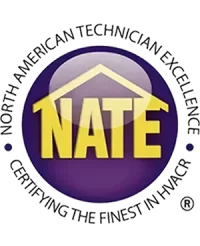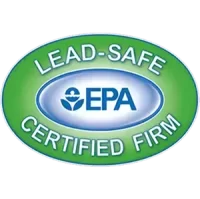Understanding When Your Heating System Needs Replacement in Glen Ellyn
Your heating system serves as the backbone of home comfort during Glen Ellyn’s harsh winters, where temperatures regularly drop below freezing from December through March. Recognizing the signs that indicate replacement rather than repair can save you from unexpected breakdowns and escalating energy costs. When furnaces age beyond fifteen years, they typically lose efficiency dramatically, operating at 60-70% of their original capacity while consuming the same or even more energy. Strange noises like banging, squealing, or rattling often signal worn bearings, cracked heat exchangers, or failing blower motors that make heating replacement more economical than continued repairs.
At Energy Services Air Conditioning and Heating Company, we encounter heating systems throughout Glen Ellyn homes that struggle with uneven heating patterns, where some rooms remain cold while others become uncomfortably warm. This temperature inconsistency usually indicates declining system performance that cannot be resolved through simple adjustments or repairs. Rising utility bills despite consistent usage patterns provide another clear indicator, as older systems work harder and longer cycles to maintain desired temperatures. Yellow pilot flames instead of blue ones suggest incomplete combustion, potentially releasing carbon monoxide into your living spaces, making immediate replacement crucial for family safety.
Modern Heating Technology Options for Glen Ellyn Homes
Today’s heating replacement options extend far beyond traditional forced-air furnaces, offering Glen Ellyn homeowners unprecedented efficiency and comfort control. High-efficiency gas furnaces now achieve Annual Fuel Utilization Efficiency ratings up to 98%, meaning nearly all fuel converts directly into usable heat. These systems incorporate variable-speed blowers that adjust output based on actual heating demands, eliminating the temperature swings common with single-stage units. Two-stage and modulating furnaces provide precise temperature control while operating at lower, quieter speeds most of the time, only ramping up during extreme cold snaps.
Heat pump technology has advanced significantly, making these systems viable even in Illinois’s challenging climate. Modern cold-climate heat pumps maintain heating efficiency at temperatures as low as negative five degrees Fahrenheit, offering both heating and cooling from a single system. Dual-fuel systems combine heat pumps with gas furnaces, automatically switching between electricity and gas based on outdoor temperatures and energy costs, optimizing both comfort and operating expenses. We’re proud to provide the best in HVAC and indoor air quality services to residential customers throughout Chicago and the surrounding communities, helping homeowners select systems that match their specific needs and home characteristics.
The Professional Replacement Process
Proper heating replacement involves far more than simply swapping old equipment for new units. Our comprehensive assessment begins with detailed load calculations considering your home’s square footage, insulation levels, window quality, and directional exposure. These calculations determine the exact BTU requirements, preventing oversized systems that cycle frequently and undersized units that run continuously without achieving desired temperatures. We evaluate existing ductwork for proper sizing, seal quality, and insulation levels, as even the most efficient furnace cannot perform optimally with leaky or undersized ducts.
The installation process requires meticulous attention to manufacturer specifications and local building codes. Proper venting ensures safe exhaust gas removal while maintaining optimal combustion air supply. Gas line connections must meet specific pressure requirements and pass rigorous leak tests. Electrical connections for blower motors, control boards, and safety switches require proper gauge wiring and dedicated circuits. Condensate drainage systems for high-efficiency furnaces need appropriate slopes and trap configurations to prevent water damage and system shutdowns. Whether you need to find the right HVAC system for a new home or want to have maintenance completed on your current system, you can count on us to handle every technical detail professionally.
Energy Efficiency and Cost Considerations
Investing in heating replacement delivers substantial long-term savings through reduced energy consumption and fewer repair needs. Modern high-efficiency systems typically reduce heating costs by 20-40% compared to furnaces manufactured before 2000. The average Glen Ellyn household spending $1,500 annually on winter heating could save $300-600 yearly with upgraded equipment. Federal tax credits and utility company rebates often offset 10-30% of replacement costs, making upgrades more affordable. ComEd and Nicor Gas frequently offer rebates ranging from $200-1,500 for qualifying high-efficiency installations.
- Annual Fuel Utilization Efficiency improvements: Moving from 80% to 95% AFUE reduces gas consumption by nearly 19%
- Smart thermostat integration: Programmable scheduling and occupancy sensing add 10-23% additional savings
- Zoning system benefits: Heating only occupied areas reduces waste and increases comfort while lowering bills by 15-30%
Selecting the Right System Size and Features
Proper system sizing remains critical for optimal performance, comfort, and equipment longevity. Oversized furnaces create uncomfortable temperature swings, increased humidity problems during shoulder seasons, and premature component wear from frequent cycling. Undersized systems run continuously during cold weather, never achieving setpoint temperatures while consuming excessive energy. Manual J calculations consider multiple factors including ceiling heights, insulation R-values, air infiltration rates, and internal heat gains from appliances and occupants.
Advanced features like variable-speed blowers provide superior comfort through consistent temperatures and improved humidity control. These motors consume 75% less electricity than standard blowers while operating so quietly that homeowners often forget their systems are running. Communicating thermostats exchange detailed information with compatible furnaces, enabling precise temperature control within one degree while monitoring system performance and alerting homeowners to potential issues before failures occur.
Planning Your Heating Replacement Timeline
Strategic replacement timing maximizes convenience while potentially reducing costs. Fall installations before peak heating season allow thorough system testing and adjustment without emergency pressure. Contractors typically offer better availability and competitive pricing during shoulder seasons when demand decreases. Spring and early summer replacements provide immediate cooling benefits with heat pump systems while preparing for the following winter. Emergency winter replacements often cost more due to high demand and limited equipment availability, making proactive replacement planning financially advantageous.
Glen Ellyn’s climate demands reliable heating from October through April, making system dependability crucial for family comfort and safety. Planning replacement before complete failure allows careful equipment selection, proper installation scheduling, and avoiding temporary heating solutions during equipment procurement. Our comprehensive maintenance programs help monitor system health, identifying declining performance indicators that suggest optimal replacement timing. Regular maintenance data provides valuable performance trending, helping predict remaining system life and planning replacement budgets accordingly. At Energy Services Air Conditioning and Heating Company, we understand that heating replacement represents a significant investment requiring careful consideration of multiple factors to ensure optimal comfort, efficiency, and value for Glen Ellyn homeowners.










